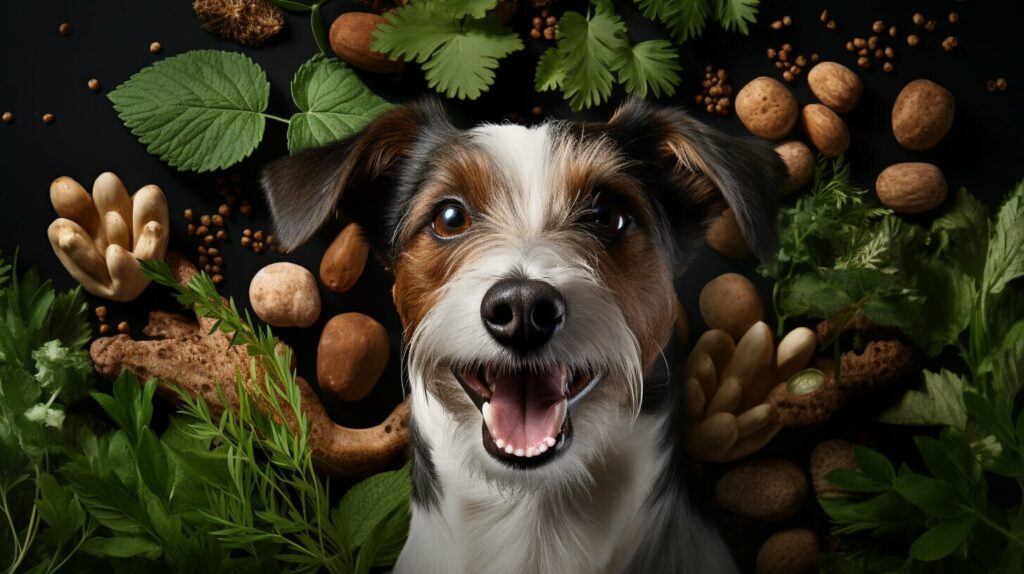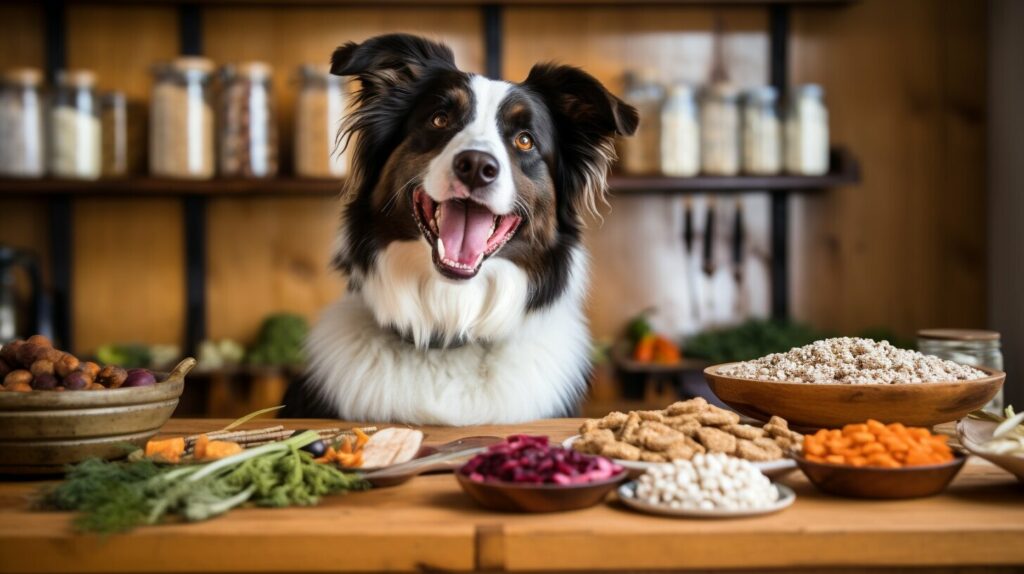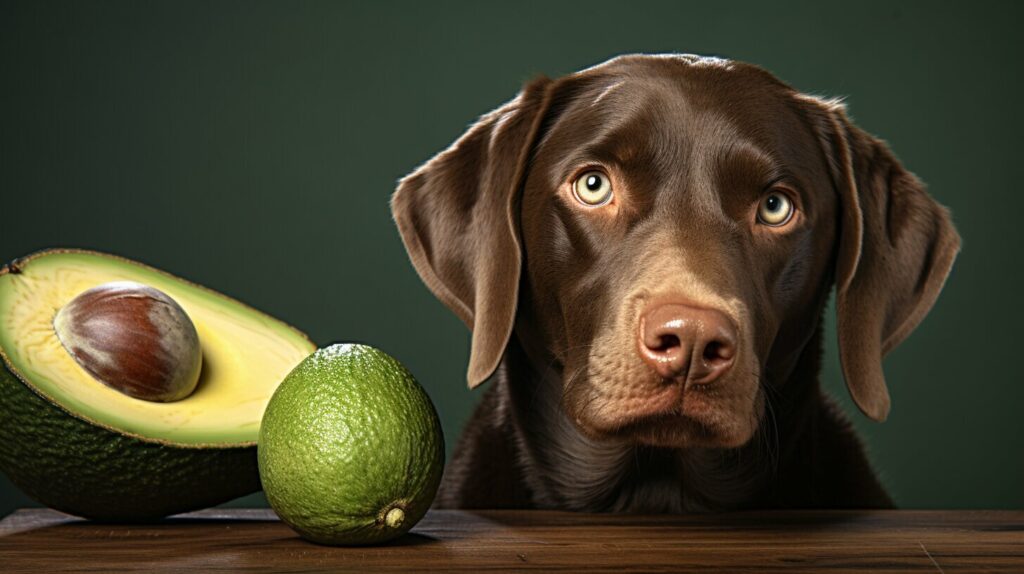If you’re a dog owner, you might be wondering if peanuts and peanut products, like peanut butter, are safe for your furry friend to eat. The answer is yes, but there are some important things to consider before introducing peanuts into your dog’s diet.
In this section, we will explore the potential benefits and risks of feeding peanuts to your dog, including the possibility of peanut allergies. We’ll also provide guidance on safe peanut products and homemade treats your dog will love.
Key Takeaways:
- It is safe for dogs to eat peanuts and peanut products, but caution is necessary.
- Some dogs may have peanut allergies, which can cause a range of symptoms.
- Peanuts can provide a range of nutritional benefits to your dog’s diet.
- Choosing safe peanut products and making homemade peanut treats can be a great way to incorporate peanuts into your dog’s diet.
Are Peanuts Safe for Dogs?
As a dog owner, you may be wondering whether peanuts and peanut products are safe for your furry friend to consume. The good news is that in moderation, peanuts can be a healthy and tasty addition to your dog’s diet. However, it is important to take precautions and be aware of potential risks associated with feeding peanuts to your dog.
When it comes to peanuts, the biggest concern for dogs is the risk of choking. Peanuts can be small and hard, making them difficult for some dogs to chew and swallow. Therefore, it is crucial to ensure that peanuts are appropriately sized and supervised during consumption.
Another risk associated with feeding dogs peanuts is the potential for allergic reactions. Although rare, some dogs may be allergic to peanuts, resulting in symptoms such as itchiness, digestive issues, and respiratory problems. If you suspect your dog may have a peanut allergy, it is best to consult with your veterinarian for proper diagnosis and treatment.
Despite these potential risks, there are safe peanut products that can be given to dogs, such as unsalted and unflavored peanut butter. Additionally, cooked peanuts without salt or seasoning can be a nutritious snack for dogs.
| Safe Peanut Products for Dogs: |
|---|
| Unsalted/Unflavored Peanut Butter |
| Cooked Peanuts without Salt or Seasoning |
Overall, while peanuts can be a healthy and tasty treat for dogs, it is important to pay attention to portion sizes and supervise your dog during consumption. Additionally, if you notice any adverse reactions or have concerns about your dog’s health and nutrition, it is always best to consult with your veterinarian.
Peanut Allergies in Dogs
Just like humans, dogs can suffer from peanut allergies. It is essential to be aware of the signs and symptoms of these allergies, as an allergic reaction can be severe and even life-threatening in some cases.
Some of the symptoms of peanut allergies in dogs include swelling of the face, itching, hives, diarrhea, vomiting, and difficulty breathing. If you notice any of these symptoms after feeding your dog peanuts, it is important to seek veterinary care immediately. In severe cases, your dog may need emergency treatment to counteract the allergic reaction.
It is also important to note that peanut allergies can develop over time, even if your dog has previously eaten peanuts without problems. Therefore, it is vital to monitor your dog’s reactions to peanuts, especially if you are introducing them into their diet for the first time.
If your dog suffers from peanut allergies, there are still plenty of safe and tasty alternatives available. Talk to your veterinarian about other nut butters or treats that your dog can enjoy without adverse reactions.
Benefits of Peanuts for Dogs
If you’re looking to add some variety to your dog’s diet, peanuts can be an excellent option. Not only are they a tasty treat, but peanuts are also a great source of protein, healthy fats, and essential vitamins and minerals. Here are some of the benefits of including peanuts in your dog’s diet:
- Protein: Peanuts are an excellent source of plant-based protein, which can be beneficial for dogs who need a little extra protein in their diets. Protein is essential for building and repairing muscles and tissues.
- Healthy Fats: Peanuts contain healthy monounsaturated and polyunsaturated fats, which can help maintain healthy skin and coat and support overall health.
- Vitamins and Minerals: Peanuts are rich in essential vitamins and minerals, including vitamin E, niacin, and magnesium, which are important for supporting a range of bodily functions.
- Antioxidants: Peanuts contain antioxidants, which can help protect cells from damage caused by harmful molecules called free radicals.
However, it’s important to note that while peanuts can be a healthy addition to a dog’s diet, they should still be given in moderation. Too many peanuts can lead to digestive issues and weight gain. It’s also important to choose unsalted peanuts, as salted peanuts can be harmful to dogs.
If you’re looking to incorporate peanuts into your dog’s diet, start with small amounts and monitor your dog for any adverse reactions. As always, consult with your veterinarian before making any significant changes to your dog’s diet.
Peanut Butter for Dogs: Yay or Nay?
Many dog owners wonder whether peanut butter is safe for their furry friends. The good news is that, in moderation, peanut butter can be a healthy and delicious treat for dogs. However, it is important to choose the right kind of peanut butter and to be aware of any potential risks associated with its consumption.
Choosing the Right Peanut Butter: When selecting a peanut butter to give to your dog, it is important to choose a brand that is free from xylitol, a sweetener that can be toxic to dogs. Look for natural, unsweetened peanut butter that contains only peanuts and possibly salt as ingredients. Avoid peanut butter that contains additional ingredients such as sugar, hydrogenated oils, or artificial sweeteners.
Potential Risks: While peanut butter can be a healthy treat for dogs, it should be given in moderation due to its high fat content. Too much peanut butter can lead to weight gain and digestive issues in dogs. Additionally, if your dog has a peanut allergy, peanut butter may cause an allergic reaction. Be sure to monitor your dog for any signs of discomfort or allergic reaction when introducing peanut butter into their diet.
How to Serve: Peanut butter can be a tasty addition to your dog’s diet in multiple ways. You can spread a small amount on a slice of apple or carrot for a healthy snack, stuff it in a Kong toy for a fun and engaging treat, or mix a spoonful into your dog’s food for added flavor and nutrition.
Homemade Peanut Treats for Dogs
Making homemade treats for your furry friend can be a fun and rewarding experience. Peanut butter is a popular ingredient in many homemade dog treats, but it is important to ensure that the treats you make are safe and healthy for your dog.
Here are some easy and safe recipes for homemade peanut treats that your dog will love:
| Recipe | Ingredients | Instructions |
|---|---|---|
| Peanut Butter Banana Bites |
|
|
| Peanut Butter Coconut Oil Treats |
|
|
When making homemade treats, remember to use only natural and dog-friendly ingredients. Avoid adding any sugar, salt, or artificial sweeteners, as these can be harmful to your dog’s health. Additionally, practice portion control and moderation when treating your dog.
Making homemade peanut treats for dogs can be a fun and healthy way to show your furry friend how much you care. Happy baking!
Peanut Alternatives for Dogs with Allergies
If your furry friend has peanut allergies, not to worry, there are alternative nut butters and treats available that are safe for them to enjoy. Some examples include almond butter, sunflower seed butter, and pumpkin seed butter. Always ensure that the products you choose are specifically made for dogs and do not contain any harmful ingredients such as xylitol.
In addition to nut butter alternatives, you can also substitute peanuts with other safe products for your dog’s diet. Some healthy options include carrots, green beans, sweet potatoes, and blueberries. These treats provide essential vitamins and nutrients that can contribute to your dog’s overall health and wellbeing.
| Safe Peanut Products for Dogs | Unsafe Peanut Products for Dogs |
|---|---|
| Peanut butter made specifically for dogs | Peanut butter containing xylitol |
| Natural peanut butter without added sugar or salt | Salted or sweetened peanut butter |
| Peanuts without shells | Peanuts with shells, which can be a choking hazard |
It is important to read the labels carefully when purchasing any food item for your dog, including peanut products. Always choose high-quality and safe products to ensure your furry friend’s health and wellbeing.
Consult with your veterinarian if you are uncertain about which products are safe for your dog, especially if they have allergies or dietary restrictions. Your veterinarian can provide tailored advice and recommendations to help you make informed decisions about your dog’s nutrition.
Introducing Peanuts to Your Dog’s Diet
If you have decided to introduce peanuts to your dog’s diet, it is important to do so carefully and gradually. Dogs can have sensitive digestive systems, so it is important to monitor them closely for any negative reactions.
Start by offering your dog small pieces of peanuts or peanut butter and observe their reaction. If your furry friend seems to tolerate it well, you can gradually increase the amount over a period of several weeks. However, if you notice any signs of upset stomach, vomiting, or diarrhea, it is best to discontinue feeding peanuts and consult your veterinarian.
When offering peanuts or peanut butter to your dog, it is essential to choose products free of additives, such as salt, sugar, or artificial flavors. These can be harmful to your dog’s health and can lead to obesity, dental problems, and other health issues.
Remember to always provide plenty of water to your dog when feeding them peanuts or peanut products. Peanuts can be high in fat, which can lead to dehydration if your dog is not adequately hydrated.
If your dog has a medical condition, such as diabetes or obesity, consult your veterinarian before adding peanuts to their diet. Peanuts can be high in calories and can cause spikes in blood sugar levels, which can be harmful to dogs with these conditions.
In conclusion, introducing peanuts to your dog’s diet can be a healthy and delicious addition, but it is crucial to do so carefully and gradually, monitoring your dog for any negative reactions. Always choose high-quality and additive-free products, and consult with your veterinarian before making any significant changes to your dog’s diet.
Peanut Precautions for Dogs
If you’re considering adding peanuts to your dog’s diet, there are certain precautions you should keep in mind to keep your furry friend safe and healthy.
- Introduce peanuts slowly: If your dog has never had peanuts before, start with a small amount and monitor for any adverse reactions, such as vomiting or diarrhea. And don’t forget to remove the shell – they can be tough to digest.
- Watch for allergies: Keep an eye out for any signs of a peanut allergy, such as itching, swelling, or difficulty breathing. If your dog experiences any of these symptoms, stop feeding them peanuts immediately and contact your veterinarian.
- Consider your dog’s health: If your dog has any health conditions, such as pancreatitis or obesity, or is on any medications, consult with your veterinarian before adding peanuts to their diet. Peanuts are high in fat and calories, so they should be fed in moderation.
- Avoid flavored peanuts: Flavored peanuts, such as honey roasted or salted peanuts, may contain additional ingredients that can be harmful to dogs. Stick with plain, unsalted peanuts or peanut butter without added sugar or salt.
- Be mindful of choking hazards: Peanuts can be a choking hazard for dogs, especially small dogs. If you’re feeding your dog whole peanuts or peanut butter with chunks of peanuts, make sure they chew carefully and supervise them while they eat.
By following these precautions, you can safely introduce peanuts into your dog’s diet and enjoy the potential benefits they can offer. However, if you have any concerns or questions, always consult with your veterinarian.
Consult Your Veterinarian
Before introducing peanuts or any new food to your dog’s diet, it’s crucial to consult with your veterinarian. Your vet can provide personalized advice based on your dog’s unique dietary needs, health conditions, and potential allergies. They can also recommend safe peanut products for dogs and warn you about potential risks associated with feeding your dog peanuts.
If your dog has a known peanut allergy, your veterinarian can suggest alternative nut butters and treats to ensure your furry friend can still enjoy tasty snacks without any adverse reactions. Moreover, if your dog has any digestive or dietary issues, your vet can provide guidance on portion sizes and how to safely incorporate peanuts into their diet.
Remember, the safety and well-being of your dog should always come first. Consulting with your veterinarian before making any significant changes to your dog’s diet is essential to ensure they stay healthy and happy.
Conclusion
In conclusion, while peanuts can be a tasty and nutritious addition to a dog’s diet, it is important to approach their consumption with caution. Before introducing dogs to peanuts or any peanut products, it is crucial to understand the potential risks and benefits. Dogs with peanut allergies should avoid all peanut products, while others can safely enjoy them in moderation. It is important to consult with your veterinarian before making any changes to your dog’s diet, ensuring their safety and well-being. By taking the necessary precautions and making informed decisions, you can treat your furry friend to some delicious peanut treats while keeping them happy and healthy.
FAQ
Q: Can dogs eat peanuts?
A: Yes, peanuts are generally safe for dogs to eat. However, it is important to introduce them gradually and in moderation to avoid any digestive upset.
Q: Are there any risks associated with feeding peanuts to dogs?
A: While peanuts are safe for most dogs, there is a small risk of allergic reactions. It is also important to avoid giving dogs salted or flavored peanuts, as these can be harmful.
Q: Can dogs be allergic to peanuts?
A: Yes, some dogs may be allergic to peanuts. Signs of a peanut allergy in dogs can include itching, hives, vomiting, and diarrhea. If you suspect your dog has an allergy, consult your veterinarian.
Q: What are the benefits of including peanuts in a dog’s diet?
A: Peanuts are a good source of protein and healthy fats for dogs. They can also provide essential vitamins and minerals. However, it is important to feed peanuts in moderation as part of a balanced diet.
Q: Is peanut butter safe for dogs?
A: In moderation, peanut butter can be a tasty treat for dogs. However, it is important to choose a peanut butter that is low in added salt, sugar, and artificial ingredients. Natural peanut butter without xylitol is usually a safe option.
Q: Can I make homemade peanut treats for my dog?
A: Yes, homemade peanut treats can be a great option for dog owners. There are many simple and safe recipes available. Just remember to use dog-friendly ingredients and avoid any potential allergens.
Q: What are some peanut alternatives for dogs with allergies?
A: If your dog has a peanut allergy, there are alternative nut butters, such as almond or cashew butter, that can be safely given. Always check the ingredients for any potential allergens.
Q: How should I introduce peanuts to my dog’s diet?
A: When introducing peanuts to your dog’s diet, start with small amounts and monitor for any adverse reactions. It is also important to consider your dog’s overall diet and consult with your veterinarian.
Q: What precautions should I take when feeding my dog peanuts?
A: Some precautions to keep in mind include avoiding salted or flavored peanuts, as well as any choking hazards, such as whole peanuts. It is also important to be aware of your dog’s unique health conditions or dietary restrictions.
Q: Should I consult my veterinarian before feeding my dog peanuts?
A: Yes, it is always recommended to consult your veterinarian before making any significant changes to your dog’s diet. They can provide personalized advice and ensure the safety and well-being of your furry friend.



